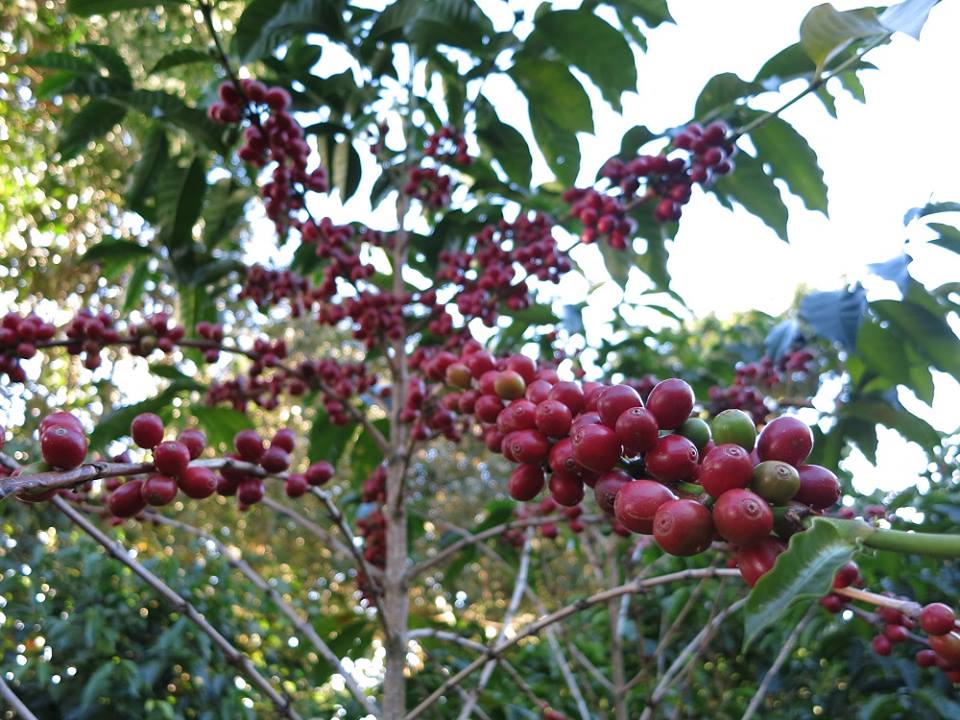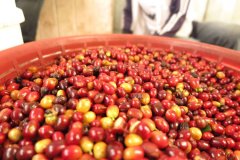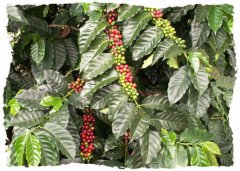Manor Gesha Village Coffee Estate of Rosa Village, Suma Surma District, Ethiopia

For professional baristas, please follow the coffee workshop (Wechat official account cafe_style)
Located in the border area between Ethiopia and Kenya, there is a rose summer forest (Gesha Forest). The rose summer variety was discovered in 1931 and spread to the Panamanian manor. Since 2004, this variety of Rosa has been invincible in coffee bean competitions, with an unforgettable elegant and unique flavor. This variety is called 1931 Geisha and is often called Panama Rosa.
While the coffee world became popular, Adam Overton, an American documentary filmmaker, and his Ethiopian photographer wife, Rachel Samuel, were commissioned to shoot a documentary about coffee in Ethiopia in 2007. With the process of filming, they had deep contact with the land and people of Ethiopia, and from then on they fell in love with coffee and this land, and their dream of building their own manor gradually sprouted.
After searching for suitable manor land for three years, Adam and Rachel moved farther and farther away from the city and into the forest area, and under the guidance of locals, they went to the native forest of Rose Xia. This location is located in Bench Maji, two days' drive from the capital, Addis Ababa. After a long journey, the two men saw the amazing beauty at first sight, and their tiredness turned into joy. They decided to build their own manor here-named Rose Summer Village Manor (Gesha Village Coffee Estate).
At that time, the two met Willem Boot, the landowner who had just bought the mule farm (La Mula) in 2009 to cultivate rose summer, and then went to Panama to ask him to learn how to grow rose summer. When Willem came to the first-breaking Rosa Village estate in 2011, Adam and Willem worked together to find a suitable variety to grow. In the nearby Gori Gesha Forest forest, they were pleasantly surprised to find a variety similar to 1931 Geisha, with a rich and charming fragrance of jasmine pervading the forest. The manor owner Adam can't help but guess that the rose summer here is the original parent variety of 1931 Geisha that year. Then, Willem Boot asked American botanical experts to compare the variety with Panamanian rose, and found that the two varieties were not only similar in shape, but also very similar in gene.
At present, the estate has 475 hectares of coffee plantation land, and the planting density is maintained at 2000 coffee trees per hectare. In the first three years of the establishment of the manor, 30,000 shade trees were planted to maintain the sun-drying ratio of coffee trees and the ecological diversity of the area. Due to the maintenance of the local ecological environment, and has a good cooperative relationship with local residents. To give back to the local community, the Rosa Village Foundation was set up to promote educational development through the two schools adjacent to the manor. The above efforts have made the residents of the area very friendly and supportive of the estate.
Manor after more than five years of efforts, three years ago, Ruoxia Village Manor established its own bidding system. The 1931 Geisha selected for you in this batch is planted in the Surma district of Bench Maji, with exquisite floral notes, elegant tropical fruit flavor and delicate honey sweetness, which is a good taste that Taoxuan and Rosa Village would like to share with you!
Selection procedure of competitive bidding lots
Batches of coffee beans will be sent to the laboratory in the Ethiopian capital, Addis Ababa, for the first selection with the Willem Boot laboratory in California.
All cup testing meetings are conducted in accordance with the standard procedures of the Fine Coffee Association (Specialty Coffee Association). All coffee beans entering the bidding competition will be selected as the bidding batch only after at least six consecutive elimination and selection processes.
Hibiscus, orange blossom, peach, lime, litchi, honey
Producing area / Gregory Rose Summer Forest, Suma
Variety / Rosa Geisha
Treatment / solarization
Planting altitude / 1900-2100 m
Annual rainfall / 1500-2000 mm
Average annual temperature / 20 degrees
Baking degree / shallow baking
Important Notice :
前街咖啡 FrontStreet Coffee has moved to new addredd:
FrontStreet Coffee Address: 315,Donghua East Road,GuangZhou
Tel:020 38364473
- Prev

Introduction to the Origin and Development History of Guji Abel Leaf small Farmer Coffee in Guji producing area of Ethiopia
For the exchange of professional baristas, please follow the coffee workshop (Wechat official account cafe_style). As Yega Xuefei became famous, it gradually became an independent producing area. Guji was independent into a new production area by the Ethiopian Commodity Exchange (ECX) in 2010. The Guji producing area, located in the southeast of Yegashefi, is adjacent to Sidamo and Gideo, which has towering mountains.
- Next

Hartman Manor, Volcán District, Panama Familia Hartman presents Kadura Caturra
Professional barista exchanges, please pay attention to coffee workshop (Weixin Official Accounts cafe_style) Hartman Manor is operated by Familia Hartmann. His family ancestor Alois Strasil Hartmann was born in the then Austro-Hungarian Empire (now the Czech Republic), and was forced to start a new life outside due to the outbreak of World War I and the turmoil in the country.
Related
- Detailed explanation of Jadeite planting Land in Panamanian Jadeite Manor introduction to the grading system of Jadeite competitive bidding, Red bid, Green bid and Rose Summer
- Story of Coffee planting in Brenka region of Costa Rica Stonehenge Manor anaerobic heavy honey treatment of flavor mouth
- What's on the barrel of Blue Mountain Coffee beans?
- Can American coffee also pull flowers? How to use hot American style to pull out a good-looking pattern?
- Can you make a cold extract with coffee beans? What is the right proportion for cold-extracted coffee formula?
- Indonesian PWN Gold Mandrine Coffee Origin Features Flavor How to Chong? Mandolin coffee is American.
- A brief introduction to the flavor characteristics of Brazilian yellow bourbon coffee beans
- What is the effect of different water quality on the flavor of cold-extracted coffee? What kind of water is best for brewing coffee?
- Why do you think of Rose Summer whenever you mention Panamanian coffee?
- Introduction to the characteristics of authentic blue mountain coffee bean producing areas? What is the CIB Coffee Authority in Jamaica?

